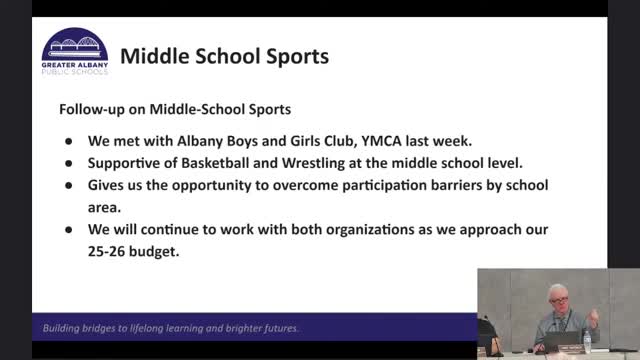Article not found
This article is no longer available. But don't worry—we've gathered other articles that discuss the same topic.

Board approves consent agenda items and motions including contract authorization for school meals

School resource officers describe bomb-threat response, renewed lockdown drills and youth engagement program

District finance staff outline rising PERS costs and planned drawdown of bond-related fund balance

